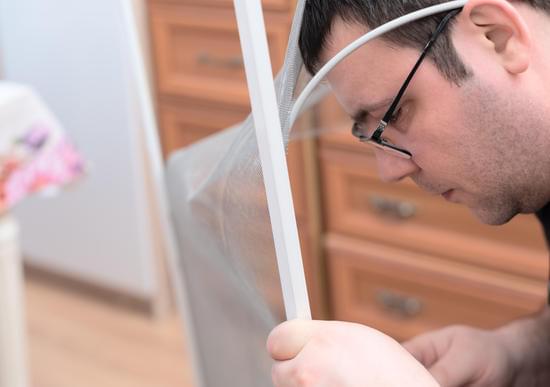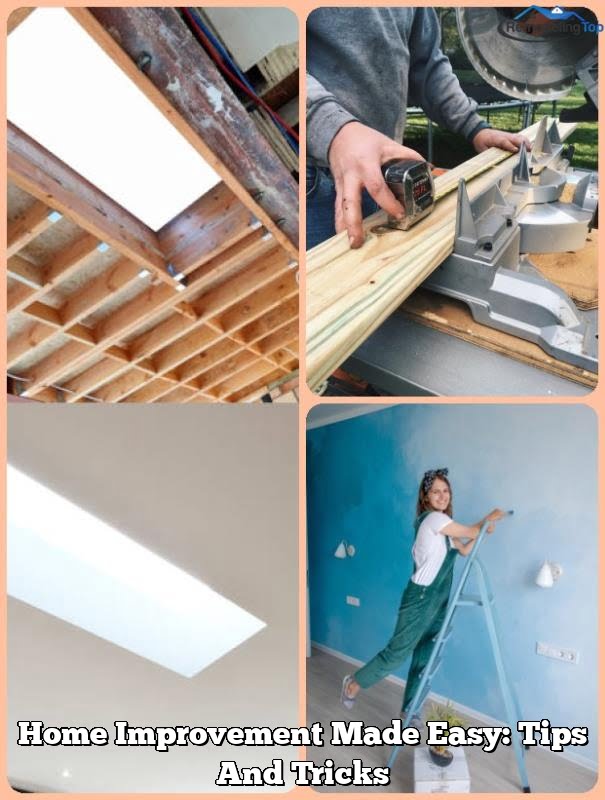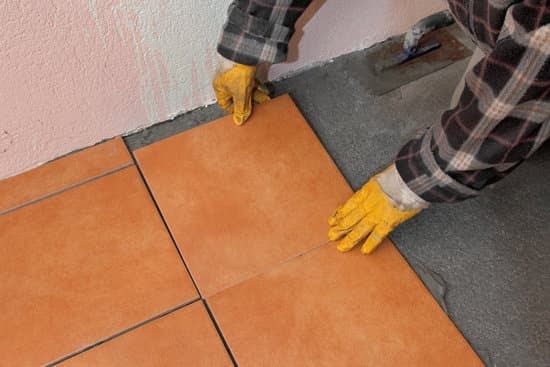Home is where the heart is, and for many homeowners, it’s a place they take pride in. Whether it’s a fresh coat of paint, a renovated kitchen, or an upgraded bathroom, home improvements can make a significant difference in the functionality and aesthetics of a living space. However, these improvements often come at a price, which leads to the question: do people save cash for home improvements?
In this article, we will delve into the importance of home improvements and why saving cash is necessary when embarking on these projects. We will explore various reasons why individuals prioritize saving money specifically for enhancing their homes and look at the benefits that come with such financial discipline. Additionally, we’ll discuss the challenges and obstacles that may arise when trying to save for home improvements and provide valuable strategies and tips to overcome them.
For any homeowner considering renovations or upgrades, having a financial cushion is essential. Saving cash allows individuals to have more control over their renovation plans and ensures that they won’t be burdened by hefty loans or credit card debts. Furthermore, having savings offers peace of mind knowing that unexpected expenses during the renovation process can be comfortably handled without disrupting the overall project.
Stay tuned as we dive deeper into understanding why people save money for home improvements, exploring success stories from real individuals who have achieved their renovation goals through disciplined savings, and discussing how saving cash can increase the value of your home. With our detailed guide on budgeting, planning, financing options, and more – you’ll gain insights that will help you embark on your own successful home improvement journey while keeping costs under control.
Reasons Why People Save Cash for Home Improvements
Home improvements are a common goal for many homeowners, and saving cash is often necessary to fund these projects. There are several reasons why people choose to save money specifically for home improvements.
- Increase the value of their home: One of the main motivations for saving cash for home improvements is to increase the value of their property. By investing in upgrades such as kitchen renovations, bathroom remodels, or adding new rooms, homeowners can significantly increase the resale value of their homes.
This can be particularly beneficial when it comes time to sell the property, as potential buyers will be willing to pay more for a house that has already been updated and modernized. - Improve functionality and comfort: Another common reason why people save cash for home improvements is to enhance the functionality and comfort of their living spaces. For example, installing energy-efficient windows or insulation can help reduce utility bills and create a more comfortable indoor environment. Adding extra storage space, upgrading appliances, or renovating outdated areas can also improve the overall functionality of a home and make day-to-day living more convenient.
- Personalization and aesthetic enhancements: Many homeowners want to personalize their living spaces and make them reflect their own style and taste. Saving money allows them to invest in aesthetic enhancements such as painting, flooring upgrades, or adding decorative elements like crown molding or built-in bookshelves. These changes not only improve the look and feel of a home but also create a sense of pride and satisfaction for the homeowner.
Saving cash specifically for home improvements provides homeowners with the financial means necessary to tackle these projects without going into debt or relying on other forms of financing. By having saved funds available, they have more control over how they invest in their homes and can prioritize projects based on their needs and goals.
| Reasons Why People Save Cash | Examples |
|---|---|
| Increase home value | Kitchen renovations, bathroom remodels, adding new rooms |
| Improve functionality and comfort | Installing energy-efficient windows, upgrading insulation, adding extra storage space |
| Personalization and aesthetic enhancements | Painting, flooring upgrades, decorative elements like crown molding or built-in bookshelves |
Exploring the Benefits of Saving Cash for Home Improvements
Saving cash for home improvements can have a multitude of benefits for homeowners. Not only does it provide financial security and peace of mind, but it also gives individuals the flexibility and control to make the desired upgrades and renovations to their homes. In this section, we will explore some of the key benefits that come with saving cash for home improvements.
Avoiding Debt and Interest
One of the significant advantages of saving cash for home improvements is the ability to avoid debt and interest payments. Many homeowners opt to finance their renovations through loans or credit cards, which can lead to substantial interest charges over time. By saving cash in advance, individuals can eliminate these additional expenses and instead use their money solely on enhancing their homes.
More Purchase Power
Another benefit of saving cash is the increased purchasing power it provides. Having a substantial amount of money saved up allows homeowners to take advantage of sales, discounts, or bulk purchasing options when shopping for materials or hiring contractors. This can result in significant cost savings and enable individuals to afford higher-quality products or services that they may not have been able to otherwise.
Flexibility and Control
When homeowners save cash for home improvements, they gain greater flexibility and control over the entire process. It allows them to choose how much they want to spend on each project, prioritize certain renovations over others, and make adjustments based on their budgetary constraints. This level of control empowers individuals to create a home improvement plan that aligns with their needs, preferences, and financial capabilities.
Understanding the Challenges and Obstacles of Saving Cash for Home Improvements
Saving cash for home improvements can be a challenging task, as there are various obstacles that individuals may encounter along the way. It is important to understand these challenges in order to come up with effective strategies to overcome them. Here are some common challenges and obstacles associated with saving cash for home improvements:
- Financial Constraints: One of the main challenges faced by individuals when saving cash for home improvements is limited financial resources. Many people struggle to find extra money in their budgets to allocate towards saving for renovations or upgrades. This may be due to already existing expenses, such as mortgage payments, utilities, and other bills.
- Unexpected Expenses: Another obstacle that can hinder savings for home improvements is unexpected expenses that arise in daily life. Emergencies like medical bills or car repairs can divert funds away from the designated savings account, making it difficult to accumulate enough money over time.
- Lack of Discipline: Saving cash requires discipline and commitment, which can be challenging for some individuals. Without a strict budgeting plan or proper financial management skills, it is easy to spend money on unnecessary items rather than prioritizing the savings goal.
To overcome these obstacles and successfully save cash for home improvements, there are several strategies and tips that can be implemented:
- Create a realistic budget: Evaluate your current income and expenses in order to create a budget that allows room for saving towards home improvements. Identify areas where you can cut back on non-essential expenses and redirect those funds towards your savings goal.
- Automate savings: Set up an automatic transfer from your checking account to a separate savings account specifically dedicated to home improvements. By automating this process, you ensure that a portion of your income goes directly into your savings without relying solely on willpower.
- Prioritize needs over wants: Develop a clear understanding of what truly needs improvement in your home versus what might simply be a desire or preference. Focus on essential renovations first before moving onto less necessary projects. This can help you allocate funds more efficiently and prevent overspending.
By being aware of the challenges and obstacles associated with saving cash for home improvements, individuals can take proactive steps to overcome them. With discipline, budgeting skills, and a clear savings plan in place, it is possible to achieve the financial goals necessary to enhance your living space.
Strategies and Tips for Saving Cash for Home Improvements
Create a Home Improvement Savings Goal
One of the most important strategies for saving cash for home improvements is to set a specific savings goal. Determine how much money you will need for your desired renovations or upgrades, and then establish a timeline for achieving that goal. Having a clear objective in mind will help you stay motivated and focused on saving.
Set Up a Separate Savings Account
To avoid the temptation to dip into your home improvement fund for other expenses, it is recommended to open a separate savings account specifically dedicated to this purpose. This allows you to track your progress easily and keeps your savings separate from your everyday spending.
Create a Realistic Budget
Developing a budget is an essential aspect of saving money for any goal, including home improvements. Take the time to outline all of the anticipated costs associated with your project, such as materials, labor, and permits. Research different suppliers or contractors to get accurate estimates and factor those into your budget. By having a detailed budget plan, you can better manage your finances and save more effectively.
Find Ways to Reduce Costs
There are numerous ways you can reduce costs when it comes to home improvements. Consider doing some tasks yourself instead of hiring a professional. Comparison shop for materials or look for sales and discounts. Reusing or repurposing certain items can also help minimize expenses. Additionally, consider eco-friendly alternatives that may have lower upfront costs as well as long-term savings in terms of energy efficiency.
Dedicate Extra Income towards Home Improvements
Harnessing additional sources of income can significantly boost your savings for home improvements. Look for opportunities to increase your earnings by taking on side gigs, freelancing, or selling unwanted items. Any extra income you generate can be directed towards your home improvement fund.
By implementing these strategies and tips into your financial plan, you can effectively save cash for home improvements. Remember that saving for your dream home upgrades takes time and discipline, but the end result will be well worth the effort.
Inspiring Success Stories
Saving cash for home improvements can be a challenging feat for many individuals. However, there are inspiring success stories of people who have successfully saved money to transform their homes. These stories serve as motivation and provide valuable insights into effective strategies for achieving this goal.
One of the keys to saving cash for home improvements is setting specific and achievable financial goals. This involves creating a budget and determining how much money can be allocated towards savings each month. Many successful savers emphasize the importance of prioritizing home improvement projects and focusing on one at a time. By breaking down larger projects into smaller, more attainable goals, individuals can track their progress and maintain motivation.
Another strategy that has proven successful is finding creative ways to cut expenses and increase income. This may involve implementing money-saving habits such as reducing unnecessary spending, switching to energy-efficient appliances to save on utility costs, or even taking on a side job or freelance work to generate additional income specifically dedicated to home improvement savings.
Furthermore, another common theme among success stories is the practice of patience and delayed gratification. Home improvements often require significant funds, and saving up can take time. Successful savers emphasize the importance of staying focused on the end goal and not being discouraged by setbacks or unexpected expenses along the way.
To summarize, inspiring success stories demonstrate that with determination, discipline, and smart strategies, it is possible for individuals to save cash for home improvements. Setting specific goals, cutting expenses, increasing income, and practicing patience are all key elements in these success stories. By following these strategies and incorporating them into one’s own financial journey, anyone can work towards transforming their living space into their dream home.
How Saving Cash for Home Improvements Can Increase the Value of Your Home
When it comes to home improvements, one of the primary reasons why people save cash is to increase the value of their homes. Investing in home improvements not only enhances the visual appeal and functionality of a property but can also substantially increase its market value. This section will explore how saving cash for home improvements can have a significant impact on the value of your home.
One of the main ways that saving cash for home improvements can increase the value of your home is by addressing any necessary repairs or maintenance issues. Potential buyers are often turned off by homes that require immediate repairs, as they view these properties as potential money pits. By using saved cash to fix up any structural or cosmetic problems, homeowners can create a more attractive and saleable property that commands a higher price.
Additionally, certain types of home improvements have been proven to provide a high return on investment (ROI). These include kitchen and bathroom renovations, adding additional square footage, and energy-efficient upgrades such as installing solar panels or upgrading insulation. By strategically choosing which areas to invest in, homeowners can maximize the ROI and significantly boost their home’s value.
Furthermore, saving cash for home improvements allows homeowners to take advantage of market trends and changes in buyer preferences. The real estate market is constantly evolving, with different styles, features, and technologies becoming popular at various times. By having cash available for renovations when needed, homeowners can adapt their properties to align with current market demands and attract potential buyers willing to pay a premium for modern amenities or sought-after features.
| Renovation Project | Average ROI |
|---|---|
| Kitchen remodel | 70-80% |
| Bathroom remodel | 60-70% |
| Deck addition | 65-90% |
| Attic conversion | 60-75% |
These figures demonstrate the potential return homeowners can expect when investing in specific renovation projects. By saving cash and strategically allocating it towards high ROI improvements, homeowners can ensure they are getting the most bang for their buck and significantly increase the value of their homes.
Factoring in the Costs
Budgeting and planning are essential aspects of saving cash for home improvements. It is important to have a clear understanding of the costs involved in order to effectively save and allocate funds. By factoring in the costs upfront, homeowners can create a realistic budget and develop a comprehensive plan for their desired improvements.
One of the first steps in budgeting for home improvements is determining the scope of the project. Whether it is a small renovation or a major overhaul, homeowners need to assess what needs to be done and prioritize accordingly. This will help in estimating the overall costs involved.
Next, it is crucial to research and gather information about the specific materials, products, or services required for the home improvement project. Prices can vary significantly depending on factors such as quality, brand, and location. Therefore, obtaining multiple quotes from different suppliers or contractors can provide a better understanding of the expected expenses.
In addition to material costs, homeowners should also consider other expenses such as labor fees, permits, and any potential hidden costs that may arise during the project. It is advisable to set aside an additional contingency fund to account for unexpected expenses or unforeseen circumstances.
Once all costs have been identified and totaled, homeowners can create a detailed budget that outlines how much they need to save per month or week towards their home improvement goals. Having a clear savings target and timeline increases motivation and makes it easier to track progress along the way.
By carefully factoring in the costs associated with home improvements, homeowners can develop a realistic budget and solid plan that ensures they are financially prepared for their desired upgrades. This proactive approach not only helps avoid financial pitfalls but also contributes to successful completion of projects within allocated funds.
Exploring Alternatives
When it comes to home improvements, many people find themselves faced with the challenge of financing these projects. While saving cash is always the preferred method, it may not always be feasible or practical. In such cases, exploring alternative financing options becomes necessary. This section will delve into various financing options that homeowners can consider when looking to undertake home improvement projects.
One popular option is obtaining a home equity loan or a home equity line of credit (HELOC). These loans allow homeowners to borrow against the equity they have built up in their homes.
The advantage of this type of financing is that the interest rates are typically lower than other types of loans and the interest paid may even be tax-deductible. However, it is important to carefully consider the terms and conditions because failure to repay the loan could result in the loss of one’s home.
Another option is using a credit card specifically designed for home improvement purposes. These cards often come with perks such as rewards or discounts on purchases made towards home improvement supplies and services. However, it is crucial to use these credit cards responsibly and pay off the balance in a timely manner to avoid accumulating high-interest debt.
For those who do not want to take on additional debt, there is also the possibility of seeking government grants or subsidies for specific types of home improvements. Different government programs exist at both federal and local levels that provide financial assistance to eligible homeowners looking to make energy-efficient upgrades or renovations. Researching and understanding these programs can help homeowners save money while improving their homes.
Conclusion
In conclusion, saving cash for home improvements can provide potential rewards and a sense of satisfaction. By setting aside money specifically for home improvements, individuals have the opportunity to enhance the value, comfort, and functionality of their homes. This article has explored the importance of saving cash for home improvements and the various reasons why people choose to do so.
One of the key benefits of saving cash for home improvements is the ability to have control over your own finances. By funding your home improvement projects with your own savings, you are not relying on loans or credit cards, which often come with high interest rates and fees. This financial independence can give you peace of mind and minimize the stress associated with debt.
Furthermore, saving cash allows you to prioritize your projects and make informed decisions about how to allocate your funds. You can plan ahead, research materials and contractors, and negotiate better deals when you have a clear budget in mind. Saving cash also provides flexibility as you are not bound by loan terms or monthly payments that restrict your choices.
Additionally, successfully saving cash for home improvements can lead to a great sense of satisfaction and accomplishment. Seeing the transformation of your home unfold before your eyes can be extremely rewarding both aesthetically and emotionally. Moreover, knowing that you were able to achieve these improvements through disciplined saving habits can boost your confidence in managing your finances effectively.
In summary, while saving cash for home improvements may present challenges along the way, it offers numerous advantages such as financial control, flexibility in decision-making, and personal satisfaction. By following strategies and tips provided in this article and learning from inspiring success stories, individuals can embark on their own journey towards creating their dream homes while simultaneously increasing their property’s value.
Frequently Asked Questions
Should I use savings for home improvements?
Whether or not to use savings for home improvements depends on individual circumstances and financial goals. It is generally recommended to have an emergency fund set aside before allocating savings towards renovations. Prioritizing essential expenses, such as debt repayment and retirement savings, is also important before considering using savings for home improvements.
Additionally, it is crucial to evaluate the potential return on investment and future value of the home after the improvements are made. Careful planning and consideration should be undertaken before using savings for home improvements.
Are home renovations worth the money?
Home renovations can be worth the money depending on various factors. They can enhance the functionality, comfort, and aesthetics of a home, which can contribute to personal enjoyment and satisfaction. Renovations may also increase the market value of a property if done wisely, potentially yielding a higher selling price in the future.
However, it is important to conduct thorough research and budget calculations before embarking on any major renovation projects. The cost of renovations should be weighed against potential benefits to determine whether they align with long-term financial goals.
What is the average spending for home improvement?
The average spending for home improvement varies widely depending on factors such as location, scope of work, and quality of materials used. According to recent studies, homeowners tend to spend between 1% to 4% of their home’s value annually on maintenance and repairs. This percentage does not include significant renovations or remodeling projects that may require substantial investments.
It is crucial for individuals planning home improvements to set realistic budgets based on their specific needs and priorities while taking into account that unexpected costs may arise during the process. Professional estimates and consultations can help homeowners gauge potential spending ranges for their desired improvements.

I’m thrilled to have you here as a part of the Remodeling Top community. This is where my journey as an architect and remodeling enthusiast intersects with your passion for transforming houses into dream homes.





